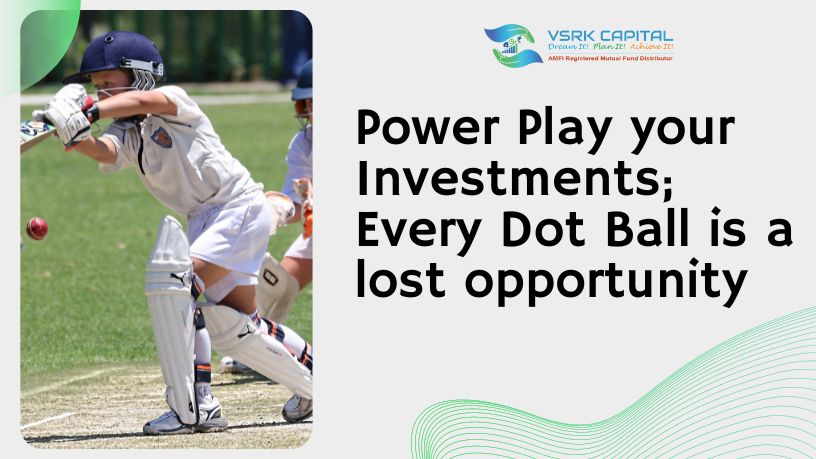
Mutual funds to purchase in 2025 have become a major topic of discussion among Indian investors, and rightly so. With changing interest rate cycles, evolving market leadership, and rising retail participation, mutual funds remain one of the most effective wealth-building tools. As we move closer to 2026, investors are reassessing portfolios, aligning long-term goals, and increasingly seeking professional mutual fund advisory support from firms such as VSRK Capital, known for its research-driven and goal-based investment approach.
Understanding Mutual Funds in the Indian Context
Mutual funds pool money from multiple investors and invest across equities, debt, or a mix of assets. In India, mutual fund penetration is still relatively low compared to developed markets, which means growth potential remains strong.
This is where AMFI-registered mutual fund distributors and investment advisory firms like VSRK Capital India play a critical role, helping retail investors navigate risk, asset allocation, and long-term planning.
Why 2025 Is a Strategic Year for Mutual Fund Selection
The year 2025 is expected to be a consolidation phase for markets. Corporate earnings growth, infrastructure spending, digital adoption, and domestic consumption continue to support long-term equity performance.
Selecting mutual funds to purchase in 2025 with the guidance of a trusted investment partner, such as VSRK Capital, allows investors to position themselves strategically rather than emotionally.
Why Investing in 2026 Still Makes Strong Financial Sense
Time in the market beats timing the market. Investors who wait for perfect conditions often miss compounding benefits. Investing in 2026 makes sense because disciplined investing, guided by professional wealth management firms like VSRK, focuses on consistency rather than speculation.
Key Economic Factors Influencing Mutual Funds in India
Several macro factors support mutual fund investments:
• Rising disposable income
• Formalization of the economy
• Digital investing platforms
• Strong domestic investor base
These trends strengthen the case for long-term investment planning in India, a philosophy consistently advocated by VSRK Capital’s mutual fund advisory framework.
Large Cap Mutual Funds to Consider in 2025
Large-cap funds invest in established companies with stable earnings. These funds suit conservative equity investors and are often recommended as the core of portfolios designed by VSRK wealth management advisors for risk-adjusted returns.
Flexi Cap Mutual Funds for Changing Markets
Flexi-cap funds allow fund managers to move across market capitalizations. This flexibility aligns well with goal-based investment planning, a strategy commonly used by VSRK Investment Advisory to adapt portfolios across market cycles.
Mid Cap Mutual Funds. Higher Growth Potential
Mid-cap funds offer higher growth potential but come with higher volatility. Advisors at VSRK Capital typically recommend controlled exposure through SIPs, ensuring long-term wealth creation without excessive risk.
Small Cap Mutual Funds. High Risk, High Reward
Small-cap funds require patience and discipline. Professional mutual fund distributors like VSRK Capital India emphasize staggered investing and strict asset allocation when allocating to this category.
Hybrid Mutual Funds for Balanced Investors
Hybrid funds remain a preferred choice for investors seeking balance. VSRK Capital’s portfolio management approach often uses hybrid funds for first-time investors and those nearing financial goals.
Debt Mutual Funds for Stability
Debt funds provide stability and liquidity. With expert guidance from VSRK Capital’s debt mutual fund advisory, investors can optimize returns while managing interest rate risk.
Index Funds and ETFs. Passive Investing Trend
Index funds are increasingly popular among Indian investors. VSRK Capital includes passive strategies for clients seeking low-cost, transparent, long-term exposure to Indian markets.
Sectoral and Thematic Mutual Funds
Sectoral funds require timing and expertise. VSRK investment advisors recommend these as satellite allocations rather than core holdings.
SIP vs Lump Sum Strategy for 2025–2026
Systematic Investment Plans remain the most effective strategy for retail investors. VSRK Capital’s SIP investment advisory focuses on discipline, consistency, and goal alignment.
How to Choose the Right Mutual Fund
Key evaluation points include fund performance, expense ratio, and portfolio quality. Investors working with VSRK Capital India benefit from research-driven selection rather than return chasing.
Conclusion
Mutual funds to purchase in 2025 offer investors a structured way to participate in India’s long-term growth story. Investing in 2026 continues to make sense for those who follow disciplined strategies, professional guidance, and long-term vision. With trusted partners like VSRK Capital, investors can focus on wealth creation with clarity and confidence.
FAQs
Investors should focus on a mix of large cap, flexi cap, hybrid, and selected mid cap mutual funds in 2025. The right selection depends on individual goals, risk tolerance, and investment horizon. Many investors prefer taking guidance from professional advisors like VSRK Capital to build a balanced portfolio.
Investing in mutual funds in 2026 makes sense because India’s long-term economic growth story remains strong. Consistent investing through SIPs allows investors to benefit from compounding, market corrections, and disciplined asset allocation, especially when guided by an experienced mutual fund advisory.
For most retail investors, SIPs are better because they reduce market timing risk and encourage disciplined investing. VSRK Capital’s SIP investment advisory often recommends SIPs for long-term wealth creation, particularly during volatile market phases.
Risk can be reduced through diversification across asset classes, regular portfolio reviews, and goal-based investing. Working with an AMFI registered mutual fund distributor like VSRK Capital India helps investors align their portfolio with risk-adjusted return expectations.
Investors choose VSRK Capital for its research-driven approach, transparent advisory process, and focus on long-term wealth creation. The firm offers personalized investment strategies, disciplined portfolio management, and professional guidance tailored to each investor’s financial goals.










